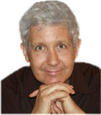“Moral Hazard” is a term coined by banks and insurance companies to determine the economic risk they face when they lend or insure a property for more than the property is worth. This has been a growing problem during the recent lengthy recession . . . and may also pose a risk to you personally!
In the case of real estate, the risk is there because there is NO incentive for the owner to take care of – or finish paying for – the property if the balance is upside down. The risk to the lender and insurance companies is obviously the loss of book value.
While moral hazard applies mostly to economics - more specifically to large ticket consumer items like real estate and cars - it also applies to other areas of life. In the macroscopic picture, moral hazard can lead to the bankruptcy of a nation or economy. On a more personal level it can lead to both moral and economic disaster.
Moral hazard has parallels related to the “Theory of Unintended Consequences.” This theory says, in essence, that while we may set out to do something helpful and constructive, we often end up creating the opposite results to what we intended. Here are some examples of how it can apply in different circumstances:
Relationships: One person might consider themselves “compassionate” when, in fact, they are an “enabler” that allows his or her partner to get away with proverbial murder. The other partner has less and less incentive to contribute to the relationship, and it eventually falls apart.
Health: Moral hazard in health arises when you do a few “healthy” things to feel good, like drinking diet colas and eating yogurt. These deeds give you the illusion of adding to good health when, in fact, they are only hiding your hidden decision to stay addicted to whatever you’re addicted to. As long as you continue to push the other stuff like smoking, no exercise, overeating fast foods, or doing drugs, you will eventually be pushing up daisies!
Personal Growth: Personal growth only takes place when there is a dynamic present that spurs you to make a decision. If you have lived a life of poverty, personal growth takes place when you resolve to escape it. If you suffer ill health or loss, personal growth comes about as a result of drastic measures on your part to improve your condition. The “moral hazard” comes in when others take this away from you, or soften the blow to the point where there is little or no incentive to take action.
Government appears to be the greatest enabler of our generation, and The Theory of Unintended Consequences was probably conceived with government in mind. This is why, in order to ensure your personal and economic health, it is vital that you limit the risks from both government and big business intrusion.
Free entitlement perks like those to alleviate extended unemployment, for example, can have the unintended consequence of limiting the out-of-work individual from looking for a job or creating a business. In the past, more millionaires were created out of recessions than at any other time. Why? Motivation and lack of a safety net!
What is your safety net? And how does this limit your risks while decreasing motivation. While homelessness and poverty are certainly not the answer, for some like Neale Donald Walsch, author of "Conversations with God," it was his path to wealth and fame.
Dr. Michael Craig is chiropractor, coach, and author of The Logical Soul, The Six Figure Coach, and various other publications. He currently coaches Life and business coaches, and you can get more information at http://mycoachtraining.com/freereport.

Post new comment
Please Register or Login to post new comment.